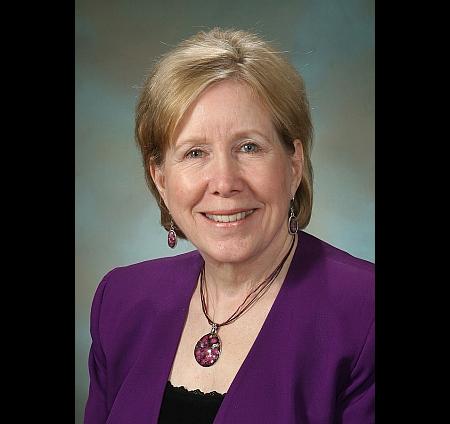State Senate balances budget, needs of the people
Sun, 05/16/2010
By Sen. Jeanne Kohl-Welles
The 2010 regular and special legislative sessions have adjourned. While we worked diligently to complete our work by March 13, it turned out that 60 days was not enough time to balance our budget while facing a historic revenue shortfall.
In no uncertain terms, we had to completely rewrite our biennial budget. After closing a revenue gap of more than $9 billion in 2009, we had to fill another $2.8 billion hole during the 2010 legislative session.
As demand for public services grew, we cut more than any legislature in state history. While businesses lose customers during tough economic times, there is greater demand on government for public services. Need for health care, emergency assistance, job training and state financial aid increase, just as our ability to pay for them decreases.
Last year, we cut $4 billion from valuable government services. For the first time since 1951, the two-year budget we approved was smaller than the preceding budget.
We made across-the-board administrative cuts, laid off thousands of public employees, tapped into the Rainy Day Fund (the state’s constitutionally required savings account to be used only in times of crisis), and slashed core funding for higher education.
We suspended voter-approved I-728, which mandates class-size reductions, and I-732, which gives teachers automatic cost-of-living pay raises. The Basic Health Plan, a program that provides affordable health care to low-to-moderate-income workers unable to obtain health insurance through their employer, shouldered a 43 percent funding reduction.
We reduced enrollments at our institutions of higher education by 9,000 and authorized tuition increases of as much as 14 percent per year at our four-year universities.
All told, we have laid off more than 8,000 public employees. Because the lion’s share of our state employees, more than 41 percent, are working for our institutions of higher education, our colleges and universities have had to shoulder these workforce reductions the most.
These destructive cuts and corresponding increases in students’ tuition will continue until we address our regressive, outmoded tax structure that is unsustainable and overly dependent on the sales tax.
Our families and businesses depend on high-quality schools, colleges and universities as well as strong workforce training programs, safe communities and efficient transportation and freight systems. Making another $2.8 billion in cuts this year would have jeopardized such vital public infrastructure.
So, this year the legislature voted to raise $757 million in new revenue, a very small part of our solution to a three-year, $12 billion revenue shortfall.
This modest new revenue:
- Maintains funding for class size reductions in grades K-3
- Preserves critical preschool programs for children under 3
- Protects Working Connections Child Care for 37,000 working families
- Maintains health care for almost 500,000 of Washington’s children
- Secures state financial aid for 57,000 needy college students.
- Provides affordable health care for 69,000 working Washingtonians
It wasn’t easy to come up with agreement on what to include in the revenue package.
Primarily, I am pleased we did not raise the general sales tax; rather, we worked to end tax preferences and exemptions. Ending ineffective tax loopholes shifts the tax burden back to those who can pay from those who cannot.
But unfortunately, we also temporarily increased the Business and Occupation tax rate for services such as lawyers, architects and accountants.
On a positive note, to help our small businesses we permanently increased the small businesses tax credit. We also increased the cigarette tax by $1 a pack. And, for the next three years, consumers will see an increased tax on soda and beer—but not Washington’s microbrews.
The package also extends the sales tax temporarily to candy and gum. This not only helps to relieve our budget woes by raising funds, it also serves another important policy goal — reducing excessive consumption of products that can cause obesity in adults and children and lead to diet-related diseases.
Numerous other states such as New York, Illinois, Florida, Massachusetts, New Jersey and Colorado have either passed new taxes on these items or are in the process of doing so.
But for every $1 we raised in new revenue, we made $4.40 in cuts. Some of these new tax increases will not be felt by consumers. Almost $200 million was raised by closing loopholes, one of which allowed out-of-state companies to avoid some taxes our in-state companies pay.
In the end, the final two-year budget makes $5.1 billion in cuts, utilizes $3.6 billion in federal assistance, draws $2.1 billion in fund shifts and reserves, and raises only $757 million in new revenues.
While many of these tax increases are temporary, it is my hope that they will sustain us through our economic recovery.
The latest employment numbers show that Washington has gained an estimated 1,600 jobs. This is the second time in three months that our state has seen positive job numbers. This growth comes after 13 consecutive months of job losses.
Our economic recovery will take time, but the steps that we have taken to create and preserve jobs have begun to take hold.
I know no one likes the idea of raising any taxes during a recession, but I believe we chose a fair and responsible way to raise revenue. As a result, core services have been protected at a time Washingtonians need them the most.
Sen. Jeanne Kohl-Welles represents the 36th Legislative District in the Washington State Senate. She chairs the Senate Labor, Commerce and Consumer Protection Committee.


